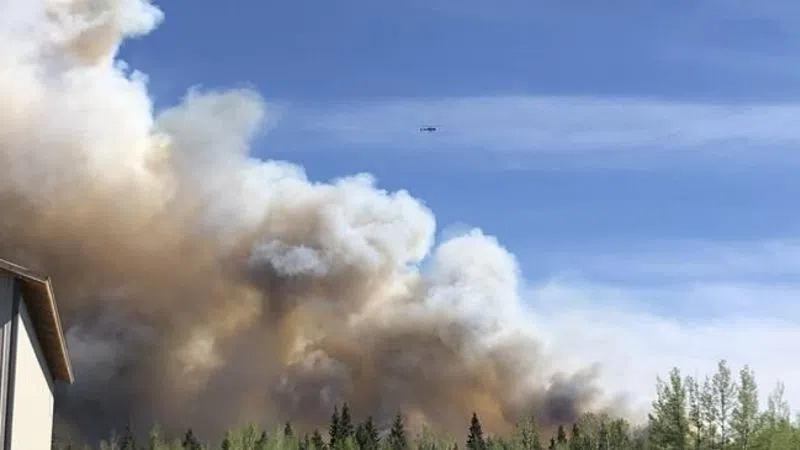
Wildfire prompts evacuation order, state of emergency in central B.C.
FRASER LAKE, B.C. — Fraser Lake Mayor Sarrah Storey was driving back from a soccer tournament out of town when she saw the skyline transformed by a wildfire creeping up a mountain on the edge of her central British Columbia community.
The blaze grew from four hectares Saturday morning to 260 hectares that night, prompting a local state of emergency and several evacuations for an area about 140 kilometres west of Prince George.
“We drove into pretty much a big huge, smoky billowing cloud and you could see the flames,” Storey said in a phone interview Sunday.



